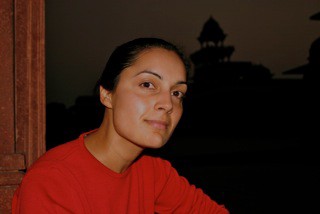Six years ago, in an impoverished corner of India, an orphanage director and a slum boy capture the imagination of their country. Plucked from obscurity and thrust into the national spotlight, Budhia Singh ran 48 marathons by the age of 4, winning hundreds of thousands of fans and making headlines around the world. But what started as a remarkable rags-to-riches saga morphed into a tale of greed, corruption and broken dreams.
I had a beginning and that felt enough. There was a boy with a prodigious talent and a complex relationship with his coach. But that wasn’t just it, initially. I was drawn to the story of Budhia’s birth mother, Sukanti, who gave away her only son to a stranger for 500 rupees (little more than $10 dollars). I found her in Gautam Nagar Slum, Orissa State, India, sitting next to the railroad and felt a strange sense of lost and found. I didn’t know this place. I didn’t want to stay, but I felt found in many ways. I loved this feeling. I imagined that this life must be similar to my own birth mother’s, whom I’ve never met, living somewhere in poverty in India. I spent several days living quietly next to Sukanti, an attempt to understand her life choices.
We were following Budhia’s story for five years, self-funding as we went. Working outside the confines of traditional documentary storytelling, in a very low key and intuitive way, allowed for a state of intimacy with characters that felt genuine and honest. It’s so hard to make these kinds of film, where you’re working largely alone and on a shoestring, but we were committed to telling the story of two poor people from an unimportant part of the world whom we came to deeply care for.
For me, the most interesting thing about the entire process was to stay connected with the characters and to ensure their trust in me never waned. Biranchi Das, the boy’s coach, is a highly complex individual and I was at pains not to present him as a one-dimensional villain. You’re aware that you are the steward of someone else’s story and so there’s an ethical obligation to deliver accurate and honestly told stories that reflect the full measure of an individual.
Each time I returned to the UK, Budhia would continue to haunt me. I was thinking that his survival instinct must have kicked in. In certain circumstances, humans can achieve the extraordinary if their lives depend on it. He may well have a genetic predisposition to running, but I was deeply concerned by how all this training was affecting him. A child of 4 is at a nascent stage of growing both physically and mentally. Putting him through such a severe regime could surely bring about early damage both physiologically and psychologically. He was perhaps too young for any muscle or skeletal damage to show up yet, but I was concerned about his soft cartilage tissue, which doesn’t become fully calcified until adolescence, and his delicate growth plates as well as the impact on his small frame.
Biranchi and I would have many heated discussions over the course of 5 years. I was told by pediatric sports experts from the UK that children pre-puberty are not trainable as they don’t possess the necessary hormones. It doesn’t matter if they are 4 or 9 years old, they remain aerobic machines. If Biranchi genuinely believed Budhia could go all the way, he should pare down his regime. The time to train him would be when he reaches puberty and becomes physiologically stronger. Biranchi would often respond with a wry smile, saying that he looks to Kenyan and Ethiopian runners for his inspiration, many of whom were running extraordinary distances at a young age, not our sporting academies in the West.
One thing I learned from the process of filming Marathon Boy is that my documentary can only serve to offer glimpses into some of the larger issues we can dissect from the characters’ lives and the way in which they live their lives in this particular place. As a result, I really wanted to handle the moral debate — the complex motivation behind human endeavour — in the most sophisticated and rigorous way I could. All these things that can be perceived as wrong or right, as bad or good, all reside together, side by side. This is the human experience of life and that’s what I hope to have ultimately shown, how things co-exist, all the wrongs and the rights together, the resilience and the despair, the broken dream and the persistence of dreams.
__________________________________
Gemma has worked as a freelance director and producer on a variety of international factual and observational documentaries. She has also spent three years working as a development producer for independent UK production houses, earning commissions in human interest, wildlife & adventure, and science programming. Prior to documentary work, Gemma spent four years working as a business journalist in West Africa and South-East Asia for the NOA Media Group in Madrid. She is co-partner in One Horse Town Productions. MARATHON BOY is her first feature documentary. In her spare time, Gemma is a keen runner and snowboarder.







